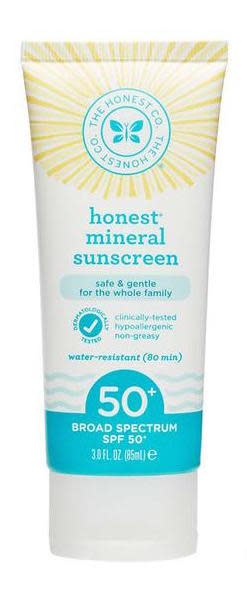Is it possible to protect yourself from the sun without using an SPF?

Now that the sun is finally shining, a lot of you have probably started wondering about sun care and how you can protect your skin from the damaging effects of UV rays. While most people will head for the sunscreen aisle, Gabby Ouimet, a certified holistic nutritionist (CNP) and vegetable expert with Village Juicery in Toronto, Ont. suggests there might be another way.
ALSO SEE: Heartbroken mom warns others after 18-year-old daughter dies of skin cancer
Ouimet is a firm believer in “clean” sunscreen and the idea of protecting the body from the inside out.
“From the inside, eating foods that are rich in antioxidants and contain healthy fats will help protect skin from the sun and help repair free radical damage,” Ouimet tells Yahoo Canada. “For external protection, antioxidant-rich creams based in aloe, sea buckthorn, seaweed and rose hip are also beneficial in soothing your skin from sun damage”
Ouimet claims that protection comes down to three key ingredients: antioxidants, healthy fats and vitamin D.
ALSO SEE: This is officially the most fun you can have applying sunscreen
“First, you can get your daily intake of antioxidants from fruits and vegetables that are deep in colour: any dark berries, goji berries, dark green vegetables and fruits that contain large amounts of lycopene - an antioxidant-rich compound found in watermelon and grapefruit. Second, eat foods high in healthy fat to improve skin integrity. Try snacking on nuts or seeds and incorporate coconut oil and fish into your diet. The third key ingredient for sun protection is vitamin D. You can get your daily dose of vitamin D through supplements, fatty fish (try salmon or swordfish) or even egg yolks. Plus, vitamin D also protects against cancer.”
A photo posted by Village Juicery (@villagejuicery) on Jun 18, 2016 at 5:55am PDT
At the same time, you shouldn’t forget about SPF – but Ouimet urges you take a holistic approach to picking the right one.
“The best approach when shopping is to look for a sunscreen that’s mineral-based in zinc-oxide (which contains zero nanoparticles) or a sunscreen that uses natural antioxidant ingredients like pomegranate, elderberry, astaxanthin or vitamin C,” she suggests.
“Use the same degree of judgement you’d use when selecting a lotion, avoiding the ’dirty dozen’ cosmetic chemicals like parabens and parfum.”
ALSO SEE: 10 sunscreen myths debunked
But what if I’ve been using the same generic sunscreen for years?
Ouimet warns that conventional sunscreens often contain chemicals that are questionable in their safety. She sites the recent EWG’s 2016 Sunscreen Guide, which found that 75 per cent of all products on the mass market contained worrisome ingredients like hormone disrupters, or ingredients that could promote tumor growth.
“Buying a clean sunscreen will help protect you from the negative side effects of products you are unaware of and often find in the mass market,” she says.

(The Honest Co., $14)
She also argues there is no danger in switching to something “cleaner.”
“Switching to a clean sunscreen will not only help protect you from the sun, but will protect your overall health in the future. Despite an increase in sunscreen use, melanoma rates have increased, which is an undeniable reason to instill a critical eye when shopping for sunscreen. From the inside out, your skin will thank you.”
ALSO SEE: It Really Works: Colorescience Mineral Sunscreen
Still not convinced? Ouimet urges you to consider just how important your skin is to your overall health.
“Your skin is your body’s largest organ and it plays a vital role in many processes of your body like detoxification and hormone balance. It’s important to remember that skin absorbs what we slather on it, which is why we need to treat and protect our skin so it can do its job and keep us healthy.”
What are your thoughts on "clean" sunscreen? Does Ouimet’s argument convince you to make a switch? Let us know your thoughts by tweeting to @YahooStyleCA.


